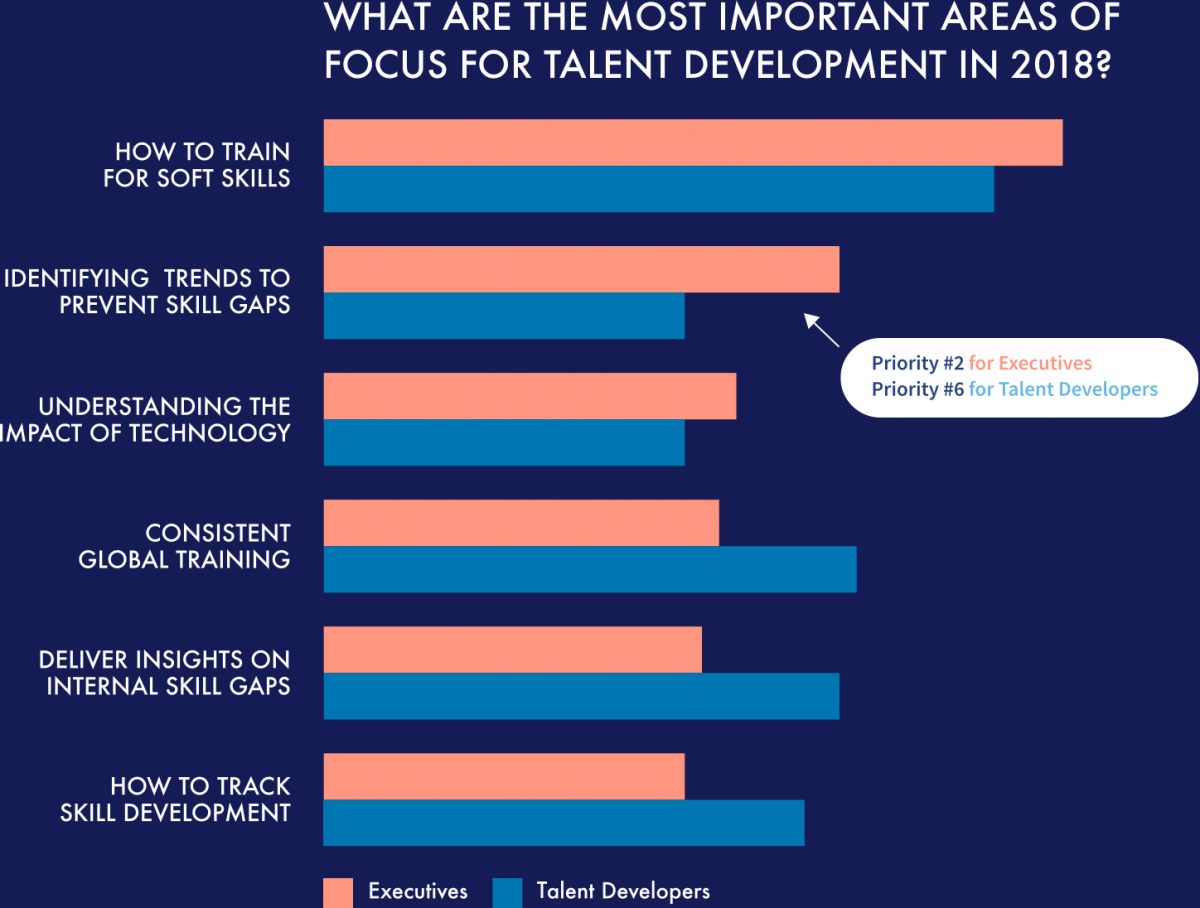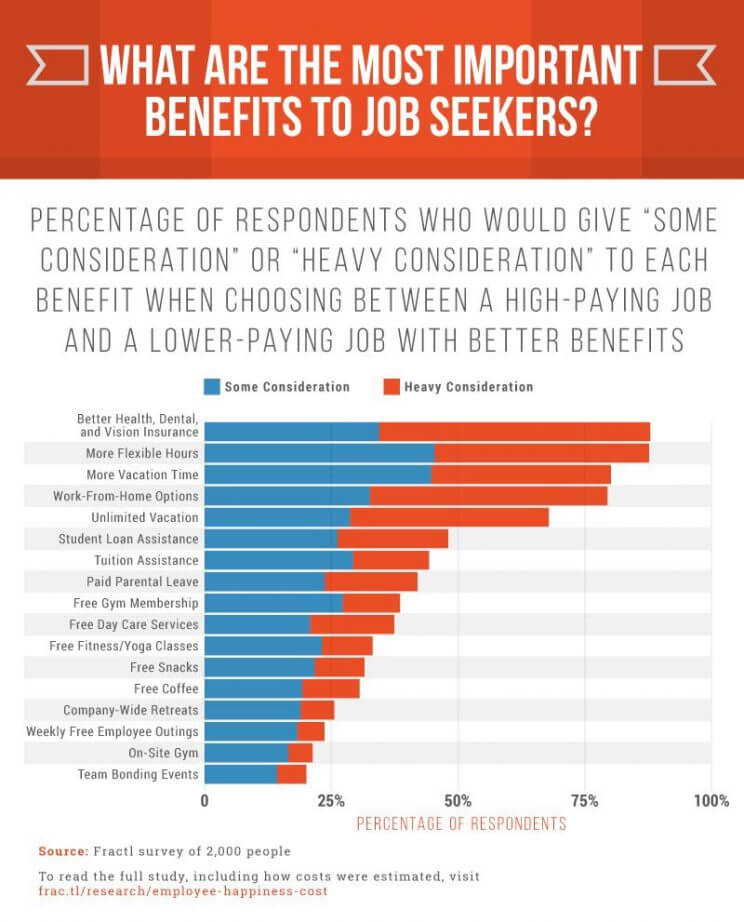 Written by: Tom Jager
Written by: Tom Jager
Without a doubt, employee learning and professional development are a critical part of a business strategy. The short shelf life of skills and a super competitive labor market make finding qualified candidates extremely easy and create significant skill shortages that companies have to deal with quickly and effectively to remain competitive.
To stay ahead of the curve, businesses try to hold on onto their best talent and encourage them to learn new skills to close the skill gap and make them feel valued. To achieve that, organizational leaders often create learning opportunities for employees and encourage them to expand their skill set.
Source: LinkedInAccording to LinkedIn’s Workplace Learning & Development report 2018, the most important areas of focus for talent development are diverse and include the following.

As you can see in the image, organizations prioritize the immediate employee development needs, but executives are asking to do more, including increasing the focus on determining industry trends to prevent internal skill gaps.
If you have the same goal of encouraging your employees to learn new skills, closing an internal skill gap, and improving the overall performance of your business, here are some valuable tips for you.
1 Set up a Personalized Employee Training Program
One of the best ways to ensure consistent learning and availability of learning resources such as video tutorials and research papers is to formalize it. Here are the steps that you’ll need to take to make it happen:
- Identify the skill gap and needs of your organization. For example, your hiring managers may need better employee assessment skills
- Set goals. What resources and teaching approach you’ll use to train your employees?
- Collect employee feedback. Raise awareness of the program among employees and ask them what they would like to see in the curriculum and what teaching methods they prefer
- Measure the results of the program using employee feedback and performance.
2 Offer Rewards for Learning and Training
Leaders play a critical role in providing motivation for employees to learn new skills, but encouragement alone is often insufficient to achieve the desired outcome. That’s where rewards come in. An organizational incentive system that provides rewards and recognition to employees who accomplish learning goals is a great tool to increase their motivation to learn, so here are some things to keep in mind to do it right:
- Don’t offer financial rewards. According to this compilation of stats from Strategic Incentives, 65 percent of employees strongly agree that such rewards as merchandise or travel are remembered longer than cash payments.
- Go for rewards such as office perks, free launches, best parking spots, sporting event tickets, wine tasting tours, spa days, days off, work-from-home days, tech accessories, free Uber rides, and so on.
Here are more ideas directly from the target audience: 2017 Employee Benefits study from Fractl identified the following benefits that job seekers value when choosing between a high-paying and a lower-paying job.

3 Involve Employees in Decision Making
Doing so can be beneficial for encouraging your employees to learn because they’ll realize that they can put a new knowledge to a good use and assist you with directing the company (that’s a pretty amazing feeling). So, you should make it clear that your employees are a good source of ideas for improving the company.
Here are ideas for you to collect employee’s ideas and demonstrate that you value their feedback:
- Seek their opinion in making decisions that impact your department or team
- Allow them to make decisions related to their or their team’s work
- Put their ideas and suggestion to use
- Ask them for ideas and propositions on planning, issue resolution, project completion and other areas.
4 Align Interests
To let your employees know that learning or training is valuable to both the company and them as professionals, clearly describe how their career will benefit from it. Every new skill they learn opens up a new opportunity (e.g. progression within your company or better pay) and improves their position in the labor market, so you should emphasize that.
By doing so, you’ll also let them know that you’re taking their career progression into account, which is something they’ll appreciate because not so many employers do that. For example, the 2017 State of the American Workplace report from Gallup found that only 20 percent of employees “strongly agree” they have had a conversation with their manager in the last 6 months about the improvement of their career.
5 Offer Personalized Feedback
Every employee participating in training should be offered personalized feedback. Annual or even monthly performance reviews aren’t enough because they often fail to offer any significant value for employees and their careers.
The aforementioned State of the American Workplace report also found that only 23 percent of employees “strongly agree” that their manager provides meaningful feedback to them. This personalized feedback is extremely important because employees who receive it are 3.5 times more engaged than others.
So, make the feedback on learning personalized by taking into account the employee’s unique expertise, aspirations, professional developmental needs, and experiences.
Conclusion
Learning in the workplace can be highly beneficial to both employees and companies, so encouraging workers to learn is something that every business has to do properly to be successful. Not only professional learning provided to employees can help to close an internal skill gap and reduce recruitment costs, but it also can increase employee retention and improve your company’s image as an excellent employer.
Tom Jager is professional blogger. He works at A-writer. He has degree in Law and English literature. Tom has written numerous articles/online journals. You can reach him at G+ or Facebook.





